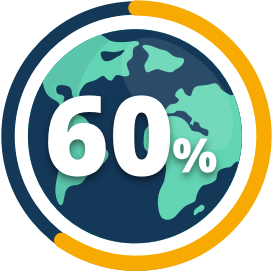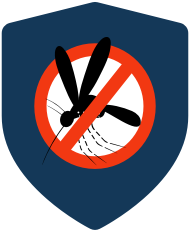Dengue can affect millions of people around the world every year, and cases are increasing dramatically.1

One projection estimates that more than six billion people (60% of the world’s population) could be at risk of dengue infection by 2080.2
But it’s not all bad news. People now recognize just how serious dengue can be, and that urgent action is needed to stop the spread of the disease.1
Until recently, attempts to control the dengue virus involved killing mosquitoes or targeting their breeding sites.3 Now scientists are looking at new ways to reduce infected mosquito numbers.
These include altering genes in male mosquitoes to prevent them from breeding,3,4 and infecting mosquitoes with a bacteria called Wolbachia, which seems to stop them transmitting the dengue virus.3
New treatments for the disease are also being developed. Drugs called antivirals work by reducing the level of virus in an infected person. People who have a high level of virus in their blood can be more likely to develop severe dengue, so a drug like this could help them if they are given it in time.5
One way to help prevent people getting sick from dengue could be a vaccination, but this is tricky.

There are four different types of dengue virus. If a person is vaccinated against one type but then catches another, it can make their symptoms worse. A dengue vaccine against the four strains would represent a major advance for the control of the disease and could be an important tool in the prevention of dengue.
The World Health Organization have information on the current status of dengue vaccine development.6
Scientists are also developing new ways to track the disease and to predict outbreaks. Understanding how the dengue virus spreads can help governments to target resources more effectively.7

This combination of modifying mosquitoes, developing vaccines and new drugs, and tracking the disease, will enable scientists to push back against dengue in the future.7


